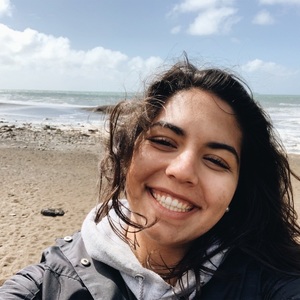I was diagnosed with type 1 diabetes when I was in elementary school, fifteen years ago. I don’t really remember a time when I didn’t count the carbohydrates in the food I eat and test my blood sugar multiple times each day. At this point I’ve conditioned myself to prefer diet coke over regular coke.
Growing up, I only talked about having type 1 diabetes when I was asked to share a fun fact about myself; the extent to which I acknowledged the presence of my chronic disease was wildly short.
When I look back on my life pre-college, I know for certain that my mother was the reason I was able to maintain reasonably good health. She is an excellent chef (in my opinion) and was able to make my favorite foods taste good while being low-carb. She also encouraged me to test my blood sugar regularly and keep track of my supplies. Diabetes always took a backseat to whatever else was going on in my life. But college was a completely different ball game.
I fell victim to the infamous freshman-15 from my poor diet during my freshman year of college. I also saw a dramatic change in my A1c (a measure of how well I manage my blood sugars).
My endocrinologist sat down with me in Spring 2019 to review the data collected over the year. Spoiler alert: she didn’t have good news. My blood sugars were running significantly higher than they did in high school. I was eating more carbs and less nutritious food, and not giving myself enough insulin. Worst of all, I was in denial about it. I wanted to be like everyone else. Sure, I had my insulin pump on my hip, but why couldn’t I cheat and just have a cup of ice cream after dinner with everyone else? Why couldn’t I eat a bowl of Frosted Flakes for breakfast, then go sit in an hour-long lecture without feeling sick? I was frustrated. I didn’t want to hear doctors tell me what to eat – I had done just fine up until that point.
Joining Spoon University was a saving grace. I had been an avid social media participator since middle school. I liked taking pictures of my food before I sat down to eat (as long as it looks pretty). Going to weekly chapter meetings made me pay more attention to what I was eating.
The summer after my freshman year, I was appointed the new photography director for my chapter. I would pull my phone out as soon as my plate hit the table to capture a perfect photo. One day my mom asked me “why was it so easy to remember to take a picture of food and post it online, but so challenging to administer insulin for that food?” That’s when something clicked for me.
I didn’t want to keep feeling ill after I ate and I wanted my health to improve. It was embarrassing strolling into my endocrinologist’s office with a sky-high A1c of 8.9. I worked to get into the habit of putting my phone next to my glucometer so that if I wanted to eat, I would remember to test my blood sugar and give insulin first. I started to realize that if I’m hyperglycemic, maybe I don’t need to order pasta and I should get a low-carb grilled chicken dish instead.

I try not to limit the foods that I eat. I know diabetes does not define me, but I need to acknowledge it because I’ll likely be dealing with it for the rest of my life.
While medical technology advances as the years pass by, I am still responsible for taking care of myself. And most days aren’t perfect.
Type 1 diabetes is challenging to manage with a college lifestyle but I am doing my best. Now that I live off-campus, it’s easier for me to find better options when I grocery shop and cook for myself because I am not limited to a dining hall. I am eternally grateful for my network of family and friends who have supported me from the get-go and challenge me to take better care of myself because they care so much. Becoming a foodie might have saved my life; I only want to be in a food coma figuratively, not literally.


